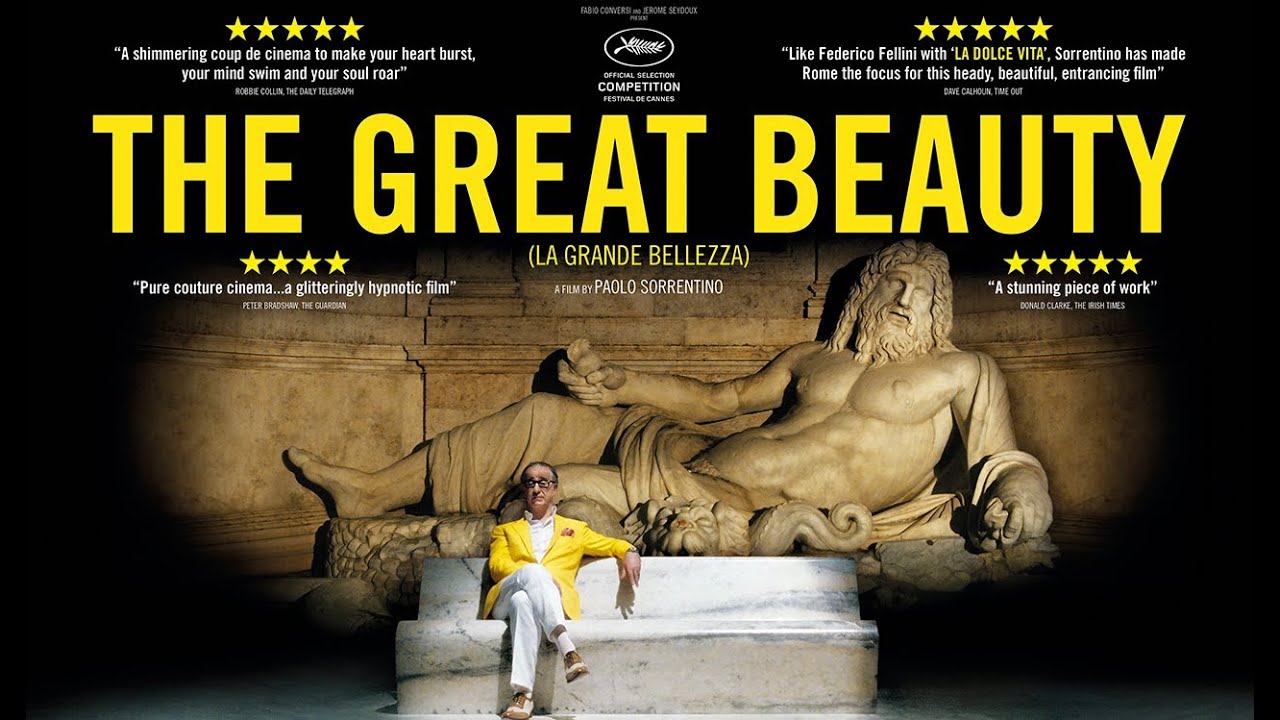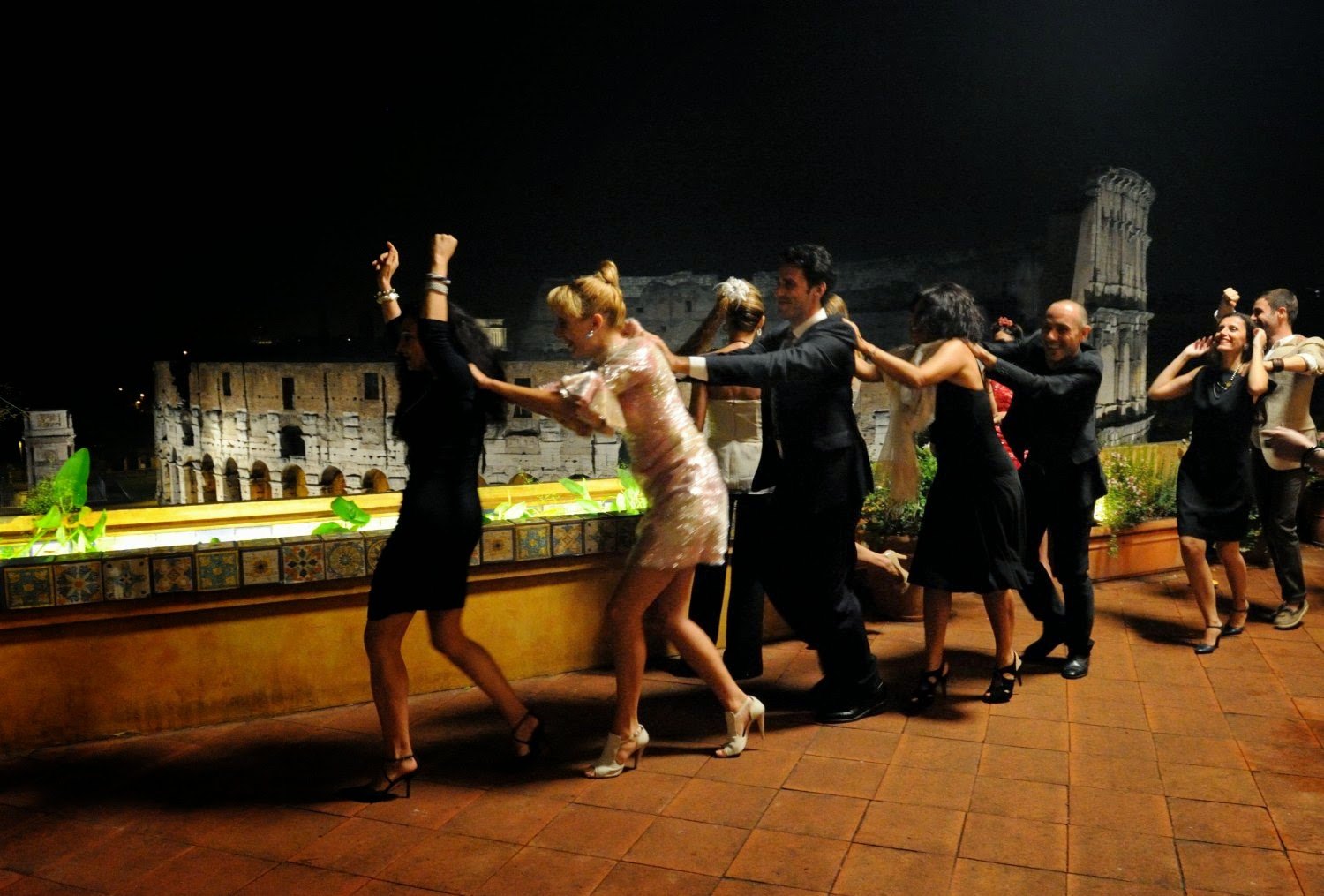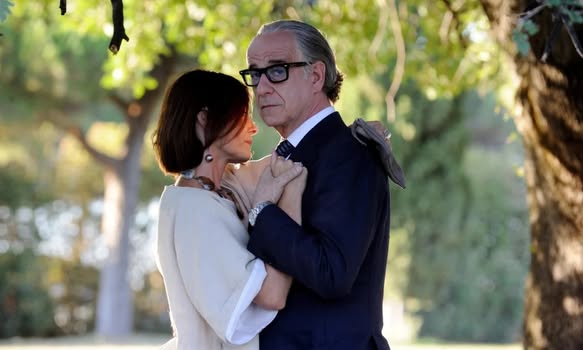The Great Beauty (2013)

The Great Beauty (original title La Grande Bellezza) is a 2013 Italian art-house drama directed by Paolo Sorrentino, who co-wrote the screenplay. The film, shot in the stunning city of Rome, explores themes of decadence, existential reflection, and the search for meaning in a life of excess. With its visually striking cinematography, thought-provoking narrative, and philosophical undertones, The Great Beauty offers a powerful meditation on beauty, art, and the passage of time. The film premiered at the 2013 Cannes Film Festival, where it competed for the prestigious Palme d’Or.
The story follows Jep Gambardella, played by Toni Servillo, a middle-aged journalist and novelist who has spent most of his life immersed in the glamorous and superficial world of Rome’s elite social scene. Jep, once an aspiring writer, now spends his days attending extravagant parties, indulging in luxury, and reflecting on his past. His journey of self-discovery begins after the death of an old friend, prompting him to confront the emptiness of his life and seek a deeper sense of purpose. The film takes viewers on a visual and emotional journey as Jep grapples with the choices he has made and the fleeting nature of beauty.
At its core, The Great Beauty is a film about the search for meaning in a world of fleeting pleasures. Jep’s life of excess and indulgence reflects the emptiness that often accompanies fame and wealth. As Jep revisits his past, he begins to question the superficiality of the world around him and his own role in it. The film’s exploration of art, culture, and the pursuit of beauty is deeply philosophical, asking profound questions about the nature of happiness, fulfillment, and the human condition. Sorrentino masterfully contrasts Jep’s hedonistic lifestyle with moments of introspection, creating a poignant narrative that speaks to the universal quest for meaning.
Toni Servillo’s performance as Jep Gambardella is a standout aspect of the film. His portrayal of a man caught between nostalgia for a lost past and the realization of the emptiness in his present is both complex and captivating. Servillo captures Jep’s cynicism and wit while also revealing his vulnerability and longing for something deeper. His character serves as a mirror for the audience, prompting reflection on their own lives and the choices they make. The supporting cast, including Sabrina Ferilli and Carlo Verdone, also deliver strong performances, adding to the film’s emotional resonance.

One of the most striking elements of The Great Beauty is its breathtaking cinematography. Shot on location in Rome, the film makes full use of the city’s historic landmarks and breathtaking vistas, turning the city into a character in itself. The visuals are stunning, with sweeping shots of the city’s iconic architecture, lush gardens, and glamorous parties, all set against a backdrop of breathtaking sunsets and picturesque streets. The film’s cinematography not only highlights Rome’s beauty but also emphasizes the contrast between the city’s opulence and the internal emptiness of the characters. The imagery in The Great Beauty enhances its themes of beauty, transience, and the passage of time.

The film’s soundtrack, featuring classical music and contemporary compositions, also plays a significant role in setting its tone. The music complements the film’s elegant visuals and introspective narrative, adding emotional depth to Jep’s journey. The soundtrack helps convey the film’s atmosphere of melancholy and reflection, heightening the emotional impact of key scenes. Through its music, The Great Beauty underscores the contrast between the fleeting nature of the pleasures Jep experiences and the enduring beauty that surrounds him.

In conclusion, The Great Beauty is a visually stunning and thought-provoking film that delves into the complexities of life, beauty, and the human desire for meaning. Paolo Sorrentino’s masterful direction, combined with Toni Servillo’s exceptional performance and the film’s breathtaking cinematography, makes it a standout in contemporary cinema. The film’s philosophical exploration of existential themes and its meditation on the fleeting nature of beauty resonate deeply with viewers, leaving a lasting impact. The Great Beauty is a cinematic masterpiece that invites reflection on the nature of happiness, the passage of time, and the pursuit of a life well-lived.











